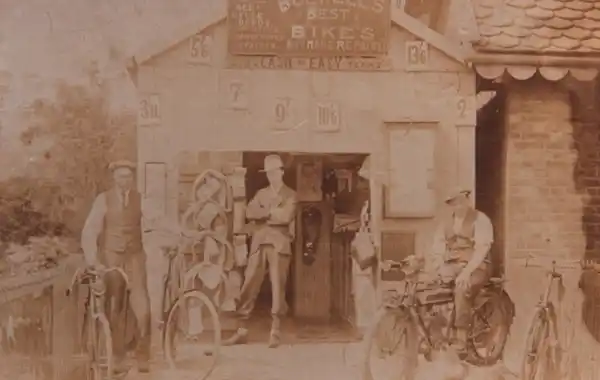04 January 2022
|
The 1921 Census for England & Wales was taken on 19 June, postponed from its original date of 24 April 1921. We take a look at the reasons for the delay.
We speak now of the ‘postponement’ of the 1921 Census, but when the papers were breaking the news of the Irish census derailment on 1 April, and subsequently that of the English, Welsh and Scottish on 14 April this may have felt more like a ‘cancellation’, which indeed for Ireland it turned out to be.
No ‘Plan B’ date had been scheduled, and it wasn’t until 26 April 1921 that the announcement was given by the General Register Office, Somerset House, that the census was to be taken on the night of 19 June (as reported, for instance in the Hartlepool Northern Daily Mail, 27 April 1921, on page 3).
The reasons for the disruption to the census plans were complex and many. From our perspective, those of our ancestors who had survived the Great War, and the subsequent Spanish Flu, were the lucky ones. Yet life was still incredibly hard. In February 1921, for example, unemployment was at 1,000,000 but by 10 June that same year it had more than doubled to 2,200,000. And these figures are set against a population half the size of our population today.
In Ireland, meanwhile, the exhortations by Sinn Fein, encouraging the population to boycott the census meant that it was deemed not worth taking it as the figures would have been too inaccurate. In addition to which, conflicts surrounding the Irish War of Independence were also seeing deaths on the streets of both Ireland and Britain.
Mini 1921 timeline
A look at just a few of the events in Britain and Ireland in March and April 1921 give a flavour of the historical backdrop to the times.
- 19 March Since January 1919 the Irish War of Independence had been waging, and 19 March had seen British troops killed in the Crossbarry Ambush, also known as the Battle of Crossbarry, Co Cork, where at least 10 British soldiers and 3 IRA were killed.
- 21 March The Headford Ambush, Killarney, Co Kerry, saw at least 9 British soldiers killed.
- 31 March The Government had controlled the coal mines during wartime but on returning them to their private owners, the owners began to issue drastic wage cuts – just shillings and pence as we may see it, but felt by our ancestors as pay cuts of 10, 20% and more. Faced with these cuts, on 31 March members of the Miners’ Federation of Great Britain called on the National Union of Railwaymen and the National Transport Workers’ Federation to join it in strike action (they didn’t, but the fact that they might join was feared and much anticipated by the Government). The Government declared a state of emergency under the Emergency Powers Act 1920, and the armed forces Reserves were mobilized.
- 1 April The lockout of striking coal miners began, and two days later coal rationing was introduced.
- 15 April Black Friday – the National Union of Railwaymen and the National Transport Worker’s Federation voted not to strike with the miners, and this was seen as a huge breach of solidarity. Yet unrest most certainly wasn’t diminishing - the National Unemployed Workers’ Committee Movement was set up by members of the Communist Party that very day, and the debate as to the terrible wages continued to rage. E.g. 18 months later, Member of Parliament Mr S. Walsh was still explaining to fellow members in December 1922, how the miners’ wages were simply not enough to live on.
Back on track
That the 1921 Census for England, Wales and Scotland went ahead, genealogists today can be thankful. The forms that had been printed for the April distribution were handed out, and from 11 June enumerators set forth with their packets of papers going from door to door.
It seems there were strict instructions that the census forms mustn’t be handed out more than 8 days prior to the census date of 19 June (Daily News, London, 11 June 1921, page 1). Was this the norm… or perhaps a stipulation by an uncertain Government who knew that, having once taken the unprecedented step of postponing the census, it may well be required to do so again…?








